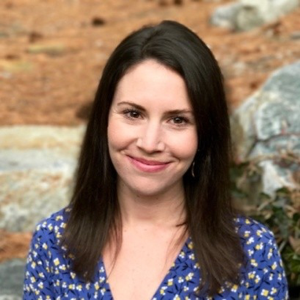How does the research that takes place at universities turn into products and services? Before the passage of the Bayh-Dole Act in 1980, recipients of federal funding for early-stage research, such as universities and federal labs, were not permitted to own the intellectual property they created. Instead, the patents filed on inventions related to federally funded research stayed with the government.
In allowing universities and federal labs to own and profit from their intellectual property, the Bayh-Dole Act was a total game-changer — leading to over $1.3 trillion in U.S. economic growth, 4.2 million jobs across the country, and 11,000 new startup companies being spun out. Before Bayh-Dole, federally funded research did not result in new drugs or vaccines being commercialized. Since it was enacted, over 200 drugs and vaccines have been developed and approved that were initially funded by the government.
Episode 1 of Season 3 of Bruce Berman’s podcast, “Understanding IP Matters” draws on the experience and insight of two technology transfer veterans who have experienced firsthand the benefits of the Bayh-Dole Act and advocate for the need to maintain it despite skeptics.
As the Executive Director of Stanford University’s Office of Technology Licensing for 27 years, Katherine Ku shaped how tech transfer professionals responded and ultimately embraced the Act. She is currently the Chief Licensing Advisor in the Palo Alto office of Wilson Sonsini.
Joe Allen helped ensure the successful passage of the landmark Bayh-Dole Act. Today, he is the Executive Director of the Bayh-Dole Coalition, a diverse group of innovation-oriented organizations and individuals committed to upholding the Bayh Dole Act and informing policyholders of its benefits.
The Legacy of the Bayh-Dole Act–and Why It’s More Important Today Than Ever
Bruce Berman: Bayh Dole is not without controversy. Admiral Rickover, a U.S. Navy director of nuclear propulsion infamously said, “Government contractors should not be given title to inventions developed at government expense. These inventions are paid for by the public and therefore should be available for any citizen to use as he or she sees fit.”
Joe Allen: “I remember Admiral Rickover very well because he testified at our hearing, and he was the father of the nuclear navy. But there’s a fallacy in what you just read.
The government is not developing these technologies. That’s the problem. These are not developed technologies. These are basically more like ideas than products. We’ve run this experiment. From 1945 till 1980, we had exactly that policy. There was not a single drug commercialized that [the National Institutes of Health] funded under that policy. When Senator Bayh and Senator Dole got into this, we found there were 28,000 inventions sitting on the shelf benefiting no one because they were not developed.
Companies are not stupid. You have to put your own money into developing these and no company, no one, is going to do that if you can’t have sufficient patent rights to protect your investment.”
Kathy: “My simple statement is what’s available to all is not valued by anyone, right? We are a capitalistic society.”
Bruce Berman: Patents and patent value, especially in the tech sector, have been beaten down. You have hurdles like the Patent Trial and Appeal Board (PTAB). What has that meant for tech transfer and licensing?
Kathy Ku: “Tech transfer sees industry as either large company, small company, physical sciences, or life sciences. University tech transfer has generally been way more successful in the life sciences. The life sciences industry believes in patents and they understand the concept of risk — a lot of technologies and potential drugs don’t make it to the marketplace, but they believe in the principle of patents.
Very early-stage technologies in the life sciences are much more easily licensed to a startup who then develops the technologies for four or five years, de-risks it a little bit, and then they partner with pharma. So, that has been a very nice model in biotech and pharma.
In the physical sciences, it’s a lot harder. Typically, big companies don’t want to take licenses from universities. Intel used to tell me, there are hundreds of thousands of patents in a computer; they don’t want the one patent from the university. So, they’re very much more resistant.
But the small companies are interested in taking some of these technologies and developing them, and then often the large companies…acquire these small companies.”
Joe Allen: “If you’re infringing on a small company’s patent, which is all they’ve got, and you’re making sales, it used to be that you could go to court and get an injunction. Now you can’t. So, the whole system, unfortunately, is now tilted against the very people driving our economy. And I think that’s why Congress is now re-looking at that.
I think the America Invents Act was a real mistake. I think it’s a shame that it wasn’t fine-tuned the way it should have been. People had the right idea. They were trying to make it so there’s an alternative to risky litigation. What they’ve set up is another loophole that can beat you down before you go to litigation.”
More Highlights
Listen to the entire episode to learn about the history of the Bayh-Dole Act, its dramatic impact on the commercialization of research funded by the government, the purpose of tech transfer offices and the principles they embrace in regards to patent licensing and litigation; plus, remarkable success stories from Stanford’s tech transfer office, including:
- How Google and Tableau benefitted from the Bayh-Dole Act; and
- Why some people, including Senator Bernie Sanders, continue to oppose the Bayh-Dole Act on principle.

![[IPWatchdog Logo]](https://ipwatchdog.com/wp-content/themes/IPWatchdog%20-%202023/assets/images/temp/logo-small@2x.png)

![[Advertisement]](https://ipwatchdog.com/wp-content/uploads/2024/05/Quartz-IP-May-9-2024-sidebar-700x500-1.jpg)
![[Advertisement]](https://ipwatchdog.com/wp-content/uploads/2024/04/Patent-Litigation-Masters-2024-sidebar-700x500-1.jpg)

![[Advertisement]](https://ipwatchdog.com/wp-content/uploads/2021/12/WEBINAR-336-x-280-px.png)
![[Advertisement]](https://ipwatchdog.com/wp-content/uploads/2021/12/2021-Patent-Practice-on-Demand-recorded-Feb-2021-336-x-280.jpg)
![[Advertisement]](https://ipwatchdog.com/wp-content/uploads/2021/12/Ad-4-The-Invent-Patent-System™.png)






Join the Discussion
No comments yet.